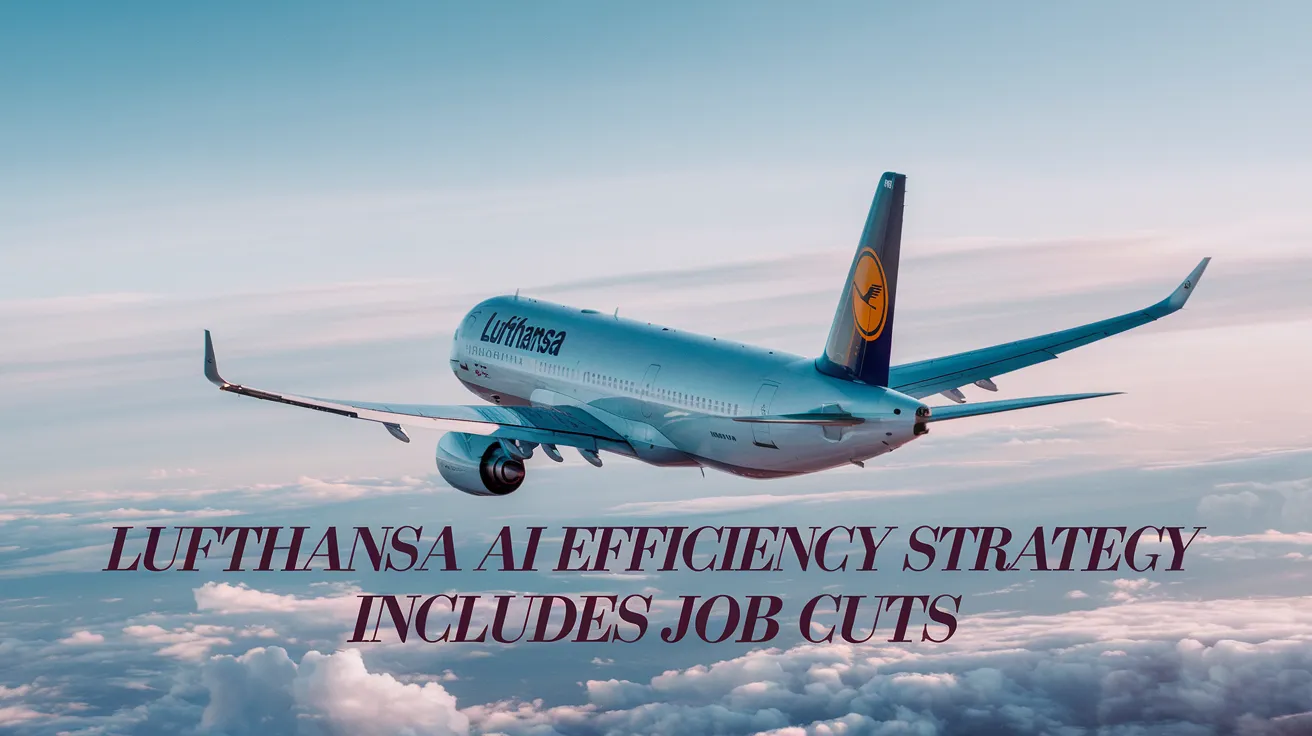Lufthansa AI Efficiency Strategy Includes Job Cuts

Lufthansa announced plans on September 29, 2025, to eliminate 4,000 roles as part of its strategy to enhance profitability and implement artificial intelligence to improve efficiency. This decision focuses on reducing full-time equivalent (FTE) positions, primarily targeting administrative roles at the airline’s home base in Germany.
The company explained that it is “reviewing which activities will no longer be necessary in the future, for example, due to duplication of work.” The integration of AI and the broader impacts of digitalization are poised to lead to significant efficiencies across various operational domains.
Lufthansa’s move is not isolated, as numerous organizations are incorporating AI into their restructuring strategies. For example, Klarna CEO Sebastian Siemiatkowski noted earlier this year that the use of AI enabled their company to reduce its workforce by 40%, decreasing from 5,000 to around 3,000 employees. Meanwhile, Salesforce, under CEO Marc Benioff, cut 4,000 customer support roles, citing a reduced need for human resources.
More recently, tech consultancy Accenture announced it would be laying off staff incapable of retraining for roles involving AI. CEO Julie Sweet emphasized their commitment to upskilling employees while moving forward with necessary staff reductions.
As a result of these changes, Lufthansa’s shares saw a 0.9% increase, reflecting investor confidence. As part of a positive outlook, the airline anticipates an adjusted operating margin of 8%-10% by 2028 and free cash flow exceeding 2.5 billion euros annually.
Despite previous struggles that saw the company missing its profitability targets in 2024 due to factors like staff strikes and increased competition, analysts have expressed a cautiously optimistic view on Lufthansa’s revised long-term goals, suggesting they may exceed market expectations moving forward.